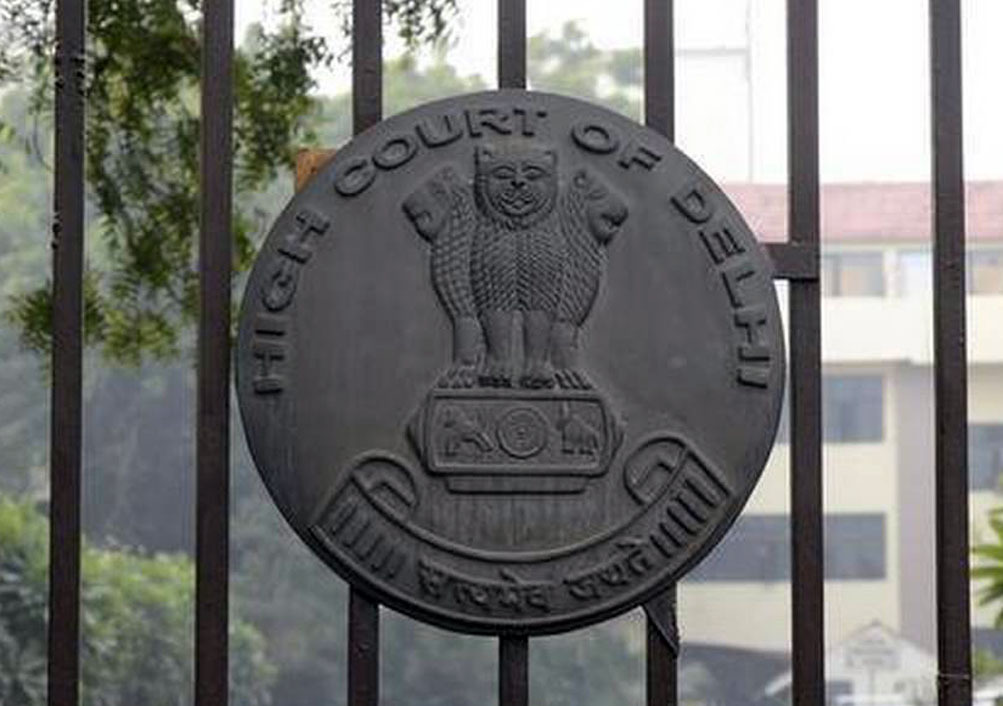In CRL. A. 707/2017 -DEL HC- Proper notice service essential for cheque bounce complaints, says Delhi High Court
Justice Amit Sharma [01-12-2023]

Read Order: Bhavna V. State & Anr
Chahat Varma
New Delhi, December 4, 2023: The Delhi High Court has upheld the acquittal of an accused in a cheque bounce case due to the complainant's failure to prove proper service of the legal demand notice.
The present case involved a dispute between the appellant, Bhavna, and the drawer, Raju, pertaining to a loan transaction and the subsequent dishonour of post-dated cheques issued as security. The appellant alleged that she had lent a total of Rs. 4,00,000 to the drawer in two instalments and, in return, received post-dated cheques as a security for the loan. However, upon presentation, the cheques were returned by the drawee bank due to insufficient funds. Subsequently, the appellant served a legal notice to the drawer demanding the repayment of the alleged cheque amount, which was not honoured. As a result, the appellant filed a complaint under Section 138 of the Negotiable Instruments Act (NI Act).
Following the trial, the Magistrate noted the lack of cogent proof of the service of the legal demand notice and identified material defects in the evidence led by the appellant. Despite the statutory presumption in favour of the appellant remaining unrebutted, the Magistrate concluded that the components of Section 138 of the NI Act were not conclusively proven. As a result, the drawer was acquitted.
The single-judge bench of Justice Amit Sharma observed that, for filing a complaint under Section 138 of the NI Act, the service of notice to the drawer was essential, and the burden to demonstrate that such notice had been served rested on the complainant. This was because the cause of action for filing the complaint arose only after the conditions specified in the proviso to Section 138 of the NI Act were fulfilled. Citing the Supreme Court's decision in V. Raja Kumari v. P. Subbarama Naidu & Anr. [LQ/SC/2004/1260], the bench highlighted that the question of whether notice, as required under Section 138 of the NI Act, had been served or not had to be decided during the trial. The complaint should not be dismissed at the threshold based on the alleged improper service of notice.
The bench further observed that once the notice had been sent to the correct address of the drawer by the complainant through registered AD, it would be presumed that the drawer had duly received the same. The burden to dislodge this presumption would be on the drawer, and this would be a question of fact to be determined during the course of the trial.
In the case at hand, the bench noted that both the postal receipt and the courier receipt relied upon by the appellant as proof of service were photocopies of the original documents, and the originals were not placed on record. Additionally, the contents of the postal receipt were not visible. The bench further noted that the appellant failed to provide an explanation for the non-production of the original service proofs, as required under Sections 63 and 65 of the Indian Evidence Act, 1872. The bench emphasized that there was nothing on record to show whether the originals of these documents had been lost or destroyed, and no explanation was provided regarding their non-production.
The bench specifically mentioned that the presumption under Section 27 of the General Clauses Act and Section 114 of the Indian Evidence Act could not be attracted in the absence of foundational facts being proved. It highlighted that the appellant could have led evidence from the concerned post office and agency to demonstrate that the notice was sent to the drawer, which was not done.
Consequently, the bench concluded that the requirement of the service of notice had not been complied with by the appellant, and the necessary conditions to file a complaint under Section 138 of the Negotiable Instruments Act were not fulfilled in this case. Therefore, the bench held that the appellant had not fulfilled the requirement of the service of notice, rendering the complaint under Section 138 of the NI Act untenable.
Further, the bench observed that an appellate court must bear in mind that in the case of acquittal, there is a double presumption in favour of the accused. Firstly, the presumption of innocence is available to him under the fundamental principle of criminal jurisprudence, and secondly, the accused, having secured his acquittal, the presumption of his innocence is further reinforced, reaffirmed, and strengthened by the trial court. It was held that if two reasonable conclusions are possible on the basis of the evidence on record, the appellate court should not disturb the finding of acquittal recorded by the trial court.
Thus, in view of the aforesaid discussion, the Court was of the opinion that there was no illegality, perversity, or mis-appreciation of facts in the impugned judgment passed by the Magistrate.
The present appeal was dismissed and disposed of accordingly.
Sign up for our weekly newsletter to stay up to date on our product, events featured blog, special offer and all of the exciting things that take place here at Legitquest.




Add a Comment